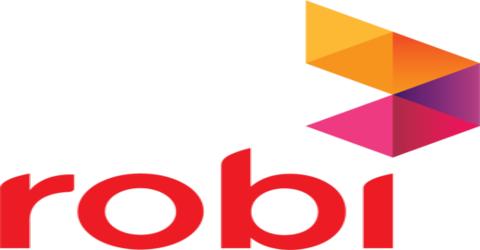Robi Axiata Limited is one of the leading mobile operator in Bangladesh. Robi diversified their market various way by product and service. Day by day Robi appears with better ideas and products as well as services to capture market position. In this report here is analysis different activities of the ROBI and evaluate all the activities of ROBI. Finally identify the different problems of Market operating System of ROBI and suggest some recommendation to over come this situation.
Introduction
Market operating system becomes accustomed to accepting the rapid pace of changes in terms of product and services. Change such as computerized Marketing, consumer credit, automated teller etc, have been introduced. Multi-national Company play an important role in financial inter-mediation and thereby contribute to the overall growth in the economy. A Multi- national company is a financial institution whose primary activity is to act as payment agent for customers . Multi-national have influenced economics and politics for centuries. The primary purpose of a Multi -national is to provide services to trading companies. Banks provided funds to allow business to purchase inventory, and collected those funds back with interest when the goods were sold. Market Operating services have expanded to include services directed at individuals and risk in these much smaller transactions is pooled.
Multi- national Company in Bangladesh is fully guided by the Related Authority, i.e. However Multi –National company has different management systems, operational techniques and different guidelines. The Market Operating system of Bangladesh is composed of variety of Multi-National Company
However, ROBI is one of the best multi-national company in Bangladesh interims of efficiency, capital adequacy, asset quality, sound management and profitability having strong liquidity. Day by day new competitors appears with better ideas and products as well as services.
Scope of the Study
The scope of the study is mainly concentrated on the different actives of ROBI such as Market Operating system, Customer Care section, Consumer channel Development& Finance Section.
Objectives of the Study
Main objective
The main objective of the study is “Market Operating System in the branch”.
Specific objectives:
- To know different activities of the ROBI
- To evaluate all the activities of ROBI
- To identify the different problems of Market operating System of .
- To prescribe some suggestions.
Methodology of the study:
Nature of the study:
The study is an exploratory research.
Types of Data:
The primary and secondary data have been used to conduct this study.
Sources of Secondary Data:
The Secondary Data of this report have been collected through Audited Financial Statement, Books ofAccounting Information system.Multi-National Company Law.
Sources of Primary Data:
The Primary Data of this report have been collected by discussion with the officers and observing the activities of ROBI..
Sample Size:
This survey will be limited within four employees of the organization. Among these employees, two officers are serving for Account opening and, other employees of ROBI.
Sampling Technique:
Non-Random sampling technique has been used to conduct the study. Among the types of Non-Random sampling, judgmental sampling technique used to select the sample size. Reason behind that:-
- The number of population is 13. So in this case simple random sample may miss the more important elements/ sample.
- Judgmental sampling is used to select sample based on some criterion. Because the major area of this study is Market Operating Management. To collect Information Judgment sampling helps to select expertise of Internal Control Management.
Methods of Data Collection:
The data have been collected through:-
- Observing the activitiesof ROBI(Feni Branch) and ;
- Discussion with the officers of ROBI (Feni Branch).
Historical Background of ROBI
Axiata Limited is a joint venture company between Axiata Group Berhad, Malaysia and NTT DOCOMO INC, Japan. It was formerly known as Telekom Malaysia International (Bangladesh) which commenced operations in Bangladesh in 1997 with the brand name AKTEL. On 28th March 2010, the service name was rebranded as ‘Robi’ and the company came to be known as Robi Axiata Limited.
Robi is truly a people-oriented brand of Bangladesh. Robi, the people’s champion, is there for the people of Bangladesh, where they want and the way they want. Having the local tradition at its core, Robi marches ahead with innovation and creativity.
To ensure leading-edge technology, Robi draws from the international expertise of Axiata and NTT DOCOMO INC. It supports 2G voice, CAMEL Phase II & III and GPRS/EDGE service with high speed internet connectivity. Its GSM service is based on a robust network architecture and cutting edge technology such as Intelligent Network (IN), which provides peace-of-mind solutions in terms of voice clarity, extensive nationwide network coverage and multiple global partners for international roaming. It has the widest International Roaming coverage in Bangladesh connecting 600 operators across more than 200 countries. Its customer centric solution includes value added services (VAS), quality customer care, easy access call centers, digital network security and flexible tariff rates.
ROBI EXPERIMENTAL PRORAMME
The Robi Experiential Program was developed in line with Axiata’s vision to be the regional mobile champion by 2015. The objective of the program is to develop talents to be the leaders for tomorrow in each country’s operations.
Axiata, one of the largest Asian telecommunication companies, has controlling interests in mobile operators in Malaysia, Indonesia, Sri Lanka, Bangladesh and Cambodia with significant strategic stakes in India and Singapore. The Group, including its subsidiaries and associates, has over 190 million mobile subscribers in Asia and serves the needs of Asia by providing affordable and innovative mobile services covering over 1.6 billion people across 9 countries. The Group provides employment to over 25,000 people across Asia. Axiata’s vision is to be a regional champion by 2015 by piecing together the best throughout the region in connectivity, innovation and world class talents, uniting them towards a single goal: “Advancing Asia”.
The Robi Experiential Program offers Bangladeshi graduates from leading universities in the world, the opportunity to develop into future leaders for the company and country as well through employment.
This will enable students to become a Young Talent within the organization as well as the Axiata Group; giving the chance to learn and cultivate the right skills and attitude in the highly dynamic mobile communications industry.
Our objective is to develop the youth of today into leaders of tomorrow by developing functional and leadership competencies, giving global exposure and accelerating career path. These promising young scholars will be given an experience unlike any other, in the hopes of nurturing and developing them to realize their full potential.
Unlike traditional scholarships that focus only on academics, the Axiata Young Talent Program (Robi Experiential Program) complements classroom education or scholarships with the 1 year intensive Accelerated Development Program that aspires to nurture individuals into wholesome individuals.
Axiata, in Malaysia, adopts the CRADLE-TO-GRAVE approach to make world class talents where they cater students from primary level upto becoming a CXO!
Bangladesh, a major focus of Axiata’s operation branded Robi, has enormous source of human capital, 30mn students under 115K institutions. Initially Robi will target graduates and will be producing world class professionals that help advancing Bangladesh which will eventually accelerate the Advancing AsiaRobi will have focus on both Business and Engineering schools to equip the world class talented leaders that will contribute for making a Digital Bangladesh.
Selection Process :
Selection Process includes an assessment center e.g.: Case studies, Intelligence test, Personality test and there will be a Competency based interview to select RXP participants.
| Factors in selection matrix |
| Case study |
| GIA online test |
| CGPA |
| Extracurricular activities |
| Interview |
| Talent Council decision |
What is in it for me:
- Opportunity to work in most dynamic and vibrant industry
- International exposure
- Robi will invest sufficient resource to develop functional and leadership competences
- Options for functional diversification
- Leadership opportunity and accelerated career
- Competitive pay
Market Operating System of “Robi”
Effective Market are the foundation of safe and sound for the Multi-national company. A properly designed and consistently enforced system of operational and financial helps a Company’s board of directors and management safeguard the Company resources, produce reliable financial reports, and comply with laws and regulations. Effective Market also reduces the possibility of significant errors and irregularities and assists in their timely detection when they do occur.
The Manager cannot delegate his responsibilities for establishing, maintaining, and operating an effective system of internal control. Manager must ensure that senior officer regularly verifies the integrity of the branch’s Market Operation.
Although internal control and internal audit are closely related, they are distinct from each other. Internal control is the systems, policies, procedures, and processes affected by the board of directors, management, and other personnel to safeguard Company assets, limit or control risks, and achieve a Company ’s objectives. Internal audit provides an objective, independent review of Company activities, internal controls, and management information systems to help the Manager monitor and evaluate internal control adequacy and effectiveness.
The Market Operating System shall cover all financial, operational and other control systems established within the bank, and regulate control activities preventing undesired events or investigative control activities aimed at proving and remedying undesired events which have occurred and leading control activities aimed at encouraging occurrence of a desired event. Such controls shall include administrative controls and managerial, financial and accounting controls, operational controls, quality controls related to financial products and services, and other controls.
Market Operation function:
all of the control activities which are performed under the governance and organizational structure established by the company’s board of directors and senior management and in which each individual within the organization must participate in order to ensure proper, efficient and effective performing of the company’s activities in accordance with the management strategy and policies, and applicable laws and regulations and to ensure the integrity and reliability of accounting system and timeliness and accessibility of information in the data system,
Objectives
The objectives of Market Operating share:
- Management is responsible for ensuring that internal controls are established, properly documented, maintained and adhered to in each unit, department, division and campus.
- All employees of the Branch are responsible for compliance with internal controls.
- The tools to establish, properly document, maintain, and adhere to the branch’s system of internal controls.
Market Operating Principles
A company, when establishing its Market operating system, should comply with the following principles:
Efficient and Effective:
Market operating by Finance must be consistently applied and well understood by company staff so that the board and management policies are to be efficiently and effectively implemented. Meanwhile, internal control should not tolerate any mismanagement by the board and top managers.
Prudent:
Market operating by Finance is to effectively mitigate company risks.
Prudence should always be the priority in establishing the internal control system.
Comprehensive:
Market operating by Finance policies and procedures should cover all aspects of company business and its operation.
Timely:
Market operating by Finance should be established from the very beginning of the company’s business commencement and function properly to send early warning signals allowing the management to take corrective actions to mitigate and avoid the potential risks.
Independent:
The duty of evaluating the effectiveness of Market operating by Finance should be separated from that of formulating and executing the Market operating . The quality and appropriateness of internal controls should be evaluated independently
CONTROL ENVIRONMENT
The control environment reflects the board of directors’ and management’s commitment to internal control. It provides discipline and structure to the control system. Elements of the control environment include:
- The organizational structure of the institution;
- Management philosophy and operating style;
- The integrity, ethics, and competence of personnel;
- The external influences that affect the Company operations and risk management practices, e.g., independent audit;
- The effectiveness of human resources policies and procedures.
The manager of Feni branch of ROBI has responsibility for formulating, approving and periodically reviewing the overall business strategies and significant policies of the company . The board of directors should periodically discuss with management concerning the effectiveness of the internal control system, timely review the evaluation procedure and results of Market operation .Manager prompts follow-up on recommendations and concerns expressed to customers on internal control weaknesses and periodically review the appropriateness of the bank’s strategy and risk limits.
Manger of the branch has responsibility for carrying out the directives of the board of directors, including the implementation of strategies and policies. Manager maintains an organizational structure that clearly assigns responsibility, authority and reporting relationships. The allocation of duties and responsibilities should ensure that there are no gaps in reporting lines and that an effective level of management control is extended to all levels of the branch and its various activities. Delegation is an essential part of the management. It is important for the manger to oversee the staff officers to whom they have delegated these responsibilities to ensure that they take the duties properly. Manageris responsible for developing processes that identify, measure, monitor and control risks, and developing processes that recruit, remunerate, motivate and reward capable staff to attract those qualified to be within the branch.
Risk Recognition and Assessment
Risk recognition and assessment is the process the manager use to identify and analyze risks that could keep the branch from achieving planned objectives. The assessment should help determine what the risks are, how they should be managed, and what controls are needed. Risks can arise or change due to factors such as:
A change in the branch’s operating environment.
- New personnel.
- New or revamped information systems.
- Rapid growth.
- New technology.
- Changes in accounting requirement.
A risk assessment should identify and evaluate the internal and external factors that could adversely affect the achievement of the branch’s performance, information and compliance objectives. This assessment should cover all risks facing the branch (that is, credit risk, country and transfer risk, market risk, interest risk, liquidity risk, operational risk, legal risk and reputation risk).
The risk assessment should be conducted at all level of individual businesses and across the wide spectrum of activities. Effective risk assessment addresses both measurable and non-measurable aspects and weighs costs of controls against the benefits they provide.
The risk assessment should also determine which risks are controllable by the branch and which are not. For those risks that are controllable, the branch must assess whether to accept those risks or the extent to which it wishes to mitigate the risks through control procedures. For those risks that cannot be controlled, the branch must decide whether to accept these risks or to withdraw from or reduce the level of business activity concerned.
And all these concerns are on the shoulder of one person only; and that key person, with having all the assessments on mind, is the Branch manager.
Market operation Activities
Market operation activities include the policies, procedures and practices established to help ensure that branch personnel carry out manager. These activities help ensure that the manager manage and control risks that could affect branch operating performance. Policies governing control activities should ensure that branch officers who perform internal control functions in addition to their operational duties do not evaluate their own work. Control activities involve two typical steps:
- Establishment of market operation policies and procedures; and
- Verification that the market operation policies and procedures are being complied with.
Control activities are applied at various organizational and functional levels and include:
Operational performance reviews:
These Market operation activities include risk assessments and reviews of actual financial performance versus budgets, forecasts, and prior-period performance as well as operational activities control. In performing these reviews, the branch relates various sets of data to one another. The branch uses these comparisons to analyze the Company actual versus projected or required performance to identify reasons for significant variances and to determine whether any specific branch activity should be adjusted.
Information processing:
Information systems Market operation activities can be broadly grouped into two categories: general controls and application controls. General controls commonly include controls over data center operations, system software acquisition and maintenance. These controls apply to mainframes, servers, end user workstations, and internal or external networks.
Application controls apply to programs the branch uses to process transactions and help ensure that transactions are valid, properly authorized and accurate.
Compliance with exposure limits:
The establishment of prudent limits on risk exposures is an important aspect of risk management. For example, compliance with limits for exposure to borrowers and other counter parties reduces the branch’s concentration of credit risk and helps to diversify its risk profile. Consequently, an important aspect of internal controls is a process for reviewing compliance with such limits and follow-up on instances of noncompliance.
Physical controls:
Generally, these activities are ensured the physical security of branch assets by the manager. They include safeguarding assets and records, limiting access to computer programs and data files, and periodically comparing actual asset or liability values with those shown on control records.
Approvals and authorizations:
Appropriate authority delegation and/or devolutions shall not compromise necessary approval and authorization, requiring approval and authorization for transactions over certain limits ensures that manager is aware of the transaction or situation so as toe enhance the accountability system.
Verification and reconciliations:
Verifications of transaction details, activities sand the output of various processing and management systems are very important for the branch to ensure accuracy and reliability of operational, financial and management reports. Reconciliations shall be carried out periodically in order to identify activities and records that need rectification or other kind of actions. Consequently, any exceptional or extraordinary result of these verifications and reconciliations should be reported timely to the manager.
Segregation of duties:
Branch establish segregation of duties by assigning different people the responsibilities for authorizing transactions, recording transactions, and maintaining custody of assets. Such segregation is intended to make it impossible for any person to be in a position to both perpetrate and conceal errors or irregularities in the normal course of his or her duties. Areas of potential conflicts of interest should be identified, minimized and subject to careful independent monitoring.
Researching above factors I come to decide that the head of Feni branch is utterly responsible for all the activities within.
Accounting, Information and Communication Systems
Accounting, information and communication systems identify, capture and exchange information in a form that enables branch personnel to carry out their responsibilities. Accounting systems include methods and records that identify, assemble, analyze, classify, record and report a branch’s transactions. Information systems produce report son operations, finance, risk management and compliance that enable the manager to manage the branch. Communication systems impart information throughout the branch and to external parties such as regulators, customers and external auditors.
An effective Market operating by finance system requires that there are adequate and comprehensive internal accounting, financial, operational and compliance data, as well as external market information about events and conditions that are relevant to decisions making. Information should be reliable, timely, and accessible and provided in a consistent manner.
An effective Market operating by finance also requires the establishment and maintenance of management information systems that cover the full range of the branch’s activities. These systems, including those that hold and use data in an electronic form, must be secure, monitored independently and supported by adequate contingency arrangements.
An Market operating by finance system requires effective communication channels to ensure that all staff fully understand and adhere to policies and procedure effecting their duties and responsibilities and that other relevant information is reaching the appropriate personnel.
The manager responsible for establishing a communication path ensuring the relevant information is reaching the right personnel, and establishing an organizational structure facilitating the adequate flow of information, either upward, downward, or across the organization.
The branch I worked in is no different than all these ingredients. So as far as the manager of this branch is concerned, he as well does not differ.
Monitoring and Correcting
- The overall effectiveness of the branch’s Market operating by finance system should be monitored on an on-going basis. On-going monitoring can have the advantage of quickly detecting and correcting the deficiencies in the system, and facilitating the manager to take actions at the earliest time. Some of the key risks should be part of the daily activities of the branch. Meanwhile, the external auditors play an important role in monitoring the branch’s internal control policies and procedures. External auditor’s functioning in this field is, viewed by the Authority, an integral part of its quality assessment.
- Monitoring the effectiveness of Market operating by finance can be done by personnel from several different areas, including the business function itself, internal audit and financial control, etc.
The Branch manager rectifies the deficiencies identified on a timely basis. It is also important that the board of directors and senior management periodically receive reports summarizing all control issues and establish a system to track the internal control weaknesses.
Summary of Findings
Summary of Findings:
The 2 (two) months internship program has been going to be finished through writing a report. During the time of internship I have tried with my best to acquire theoretical and practical knowledge of Market Operating system of Robi. Being an employee of ROBI.
Chapter-1: Introduction is illustrated in chapter one. Here I have tried to find out the scope of and the limitations of the study by discussing the background of the program. This is just an introductory discussion.
Chapter-2: In chapter two I have tried to familiarize the organization with educated society.
Chapter-3: In this chapter I tried to discuses in brief all types of Robi Product and Service.
Chapter-4: Bangladesh is one of the less developed countries. So the economic development of the country depends largely on the activities of Multi-National company.
Chapter-5: This chapter about Investment and information of Deposit, investment and Asset of Multi-National company.
Chapter-6: Chapter for helps us taking decision about any kind of Investment and on what institution because all financial organizations send their defaulter client list to the CIB.
Chapter-8: Chapter eight discusses investment proposal with an another angle. Here risk is firstly measured and on the basis of calculated Risk investment proposal is rejected or accepted.
basis we will take decision are discussed here
Chapter-7: Chapter seven plays an important role in financial sector. Credit Information Bureau (CIB) of Bangladesh Bank helps to us detect any defaulter client of any financial
Chapter-9:Chapter ten is a concluding part of this report. Here problems & limitations
Problems & Limitations:
During collecting of information and data from Multi-National company. & making report for this project the following problems have been followed:
- Decision making process is very lengthy and sometimes it creates problems, which is unexpected to the customers. Most of the cases Head Office controls the decision making and it is centralized.
- The total number of employees in comparison with needed is very short. this is hampering the daily operation of the Bank. For an example, Gulsahn Branch is suffering from shortage of employee.
- Lack of proper explanation of records and document records keeping system
Recommendations:
Decision Making: Decision making power should be decentralized effectively so that business can promptly be enhanced.
Number of Employees:A handsome number of qualified employees & staffs should be appointed very soon for maintaining the normal flow of work.
Records keeping system: Filing and record keeping system of the Multi-National company. should me modernized .At present operation system is partially computerized and on line should be started very soon.
Effective information system: Effectiveness of credit policy largely depends on Multi-National branch, divisional & national level information system.
Development of manpower: Effective implementation of credit policy and recovery tare depends on higher educated, trained and skilled personnel. Bank should procure and develop such types of employees for its credit wings.
SWOT Analysis in ROBI:
Every organization is composed of some internal strengths and weaknesses and also has some external opportunities and threats in its whole life cycle.
Strengths:
- ROBI provides its customer excellent and consistent quality is every service.
- ROBI is financially sound company.
- ROBIutilizes state of the art technology to ensure consistent quality and operation.
- ROBI provides its works force an excellent place to work
- ROBI has research and training division.
Opportunities:
- Emergence of on line banking will open more scope for AIBL.
- AIBL can introduce more innovative and modern customer service.
- Many branches can be opened in local remote area as its high demand.
- AIBL can recruit experienced, efficient and knowledgeable officers and staffs as it offers good working environment.
Threats:
- The worldwide trend of mergers and acquisition in financial institutions is causing problems.
- Frequency taka devaluation and foreign exchange rate fluctuation is causing problem.
- Local competitors can capture huge market share by offering similar products.
Recommendations
In order to retain and attract new customers towards any particular Company , the Company management needs to have a clear operational efficiency and must thoroughly analyze the scopes for further development. Therefore it is a key area for the Company to closely monitor their performance level, which comprises the functional units, that provides services to its clients. To make better position in the industry both Company need to expand some activities & should give emphasis on some field & need to introduce new and diversified financial products to provide wider option to customers. Without having an effective customer base, it becomes difficult for any Company to compete and sustain in the competitive market for the banking services. Before drawing the end I would like to offer the following suggestions for bringing improvements of ROBI (Feni Branch):
- Without proper knowledge in different laws, rules efficiency of employees cannot be optimize. Company can arrange training program on these subjects and can test its employees which will improve their qualities.
- ROBI (Feni Branch):should established Foreign Exchange department to acquire more potential customer.
- ROBI (Feni Branch):should set up more customer care in all their branches.
- ROBI (Feni Branch):should establish Student File to obtain more potential customer.
- It seems to me that day-by-day customers operation is increasing individual employee has to handle different types of job. But that is pocking a back for an employee. As a result it might beoccurred any big mistake by the employee and service is also timed consuming and customer has to suffer for this situation. May be it would be the reason for employee’s de-motivation as well as the customer’s dissatisfaction. So it should not happen in this branch.
- ROBI (Feni Branch):. should focus on their promotional activities.
- They should also focus on the marketing aspects to let customers know about their products and offerings and more promotion should be given to attract new customer.
- ROBI (Feni Branch):can arrange a training program for the employees to learn the proper use of the computer.
- To deliver quality service top management should try to mitigate the gap between customer’s expectation and employee’s perception etc.
- Breach should try to mitigate the gap between customer’s expectation and employee’s perception and customer’s convenience should give priority.
Conclusion
The Multi –national Company arena in recent time is one of the most competitive business fields in
Bangladesh. As Bangladesh is a developing country, a strong Multi –national Company sector can change the socio economic structure of the country. So I can say the whole economy of the country is linked up with its Multi –national Company ROBI is the Multi –national Company which is highly potential Multi –national Company of Bangladesh. This bank performs hundreds of important activities both for the public and for the government as a whole. It has an outstanding bearing to thrive our business sector. From the learning and experience point of view I can say that I really enjoyed my internship. From the very first day till the last, I was confident that this 3 months internship program at ROBI (FENI Branch) will definitely help me to realize my future carrier in the job market. Performance analysis of a department of a Multi –national Company is not so sufficient to measure and express perfectly within this short time of my internship period. But it is a great opportunity for me to get used with the operational environment of Multi –national Company of ROBI. I have tried by soul to incorporate the research report with necessary relevant information in my report. ROBI should always try to improve their service level in every term.
















